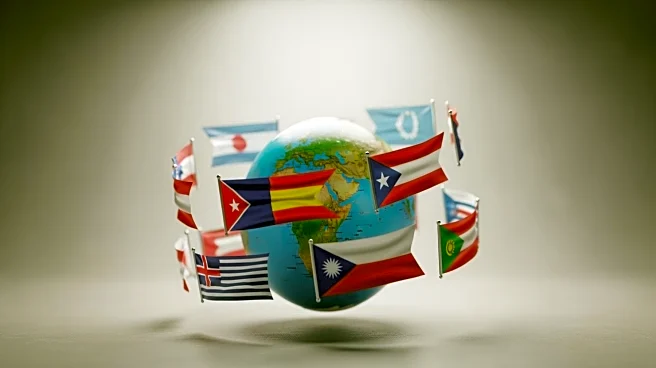What's Happening?
Countries around the world are expressing hesitancy to send military forces to the Gaza Strip due to the strong presence and influence of Hamas. Since taking control in 2007, Hamas has maintained a significant
hold over the region, complicating the security landscape and raising concerns about potential clashes or alliances if foreign troops were to intervene. The geopolitical complexities, coupled with the potential risks to civilian lives and infrastructure, contribute to the reluctance of nations to engage militarily in Gaza.
Why It's Important?
The reluctance of countries to intervene in Gaza highlights the intricate balance of international relations and the challenges of addressing long-standing conflicts. The situation underscores the importance of diplomatic efforts and multilateral cooperation in seeking sustainable solutions. The ongoing humanitarian crisis and security threats in Gaza persist in the absence of robust international involvement, raising questions about alternative strategies to address the challenges posed by Hamas's stronghold.
What's Next?
As the situation in Gaza evolves, the international community continues to debate the appropriate course of action. Diplomatic sources emphasize the need for a comprehensive approach that includes multilateral cooperation and adherence to international norms. The decision of whether to send forces to Gaza remains a contentious issue, with broader implications for regional stability, diplomatic relations, and civilian well-being.








